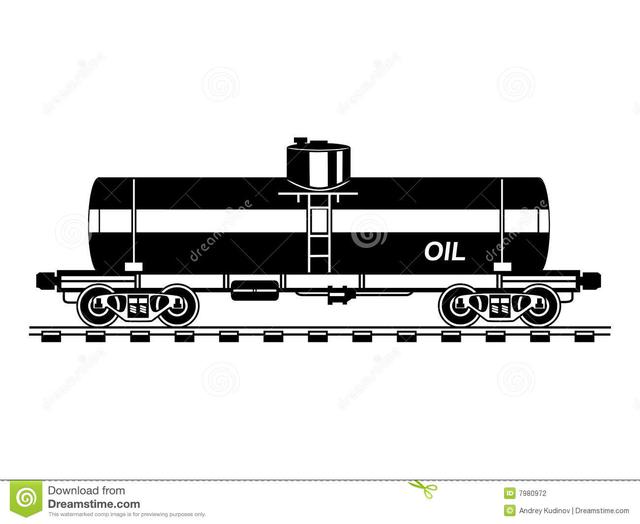Congressman Blasts DOT Over Failure to Finalize
Tank Car Rule
"DeFazio said his concerns about PHMSA extend to the agency’s “failure to
address long-standing, significant safety issues extend to pipelines, as well.”
Transport Topics
1/22/2015
By Michele Fuetsch, Staff Reporter
Rep. Peter DeFazio (Ore.), ranking Democrat on the House Transportation and Infrastructure Committee, blasted the Department of Transportation for what he called repeated failures to address “long-standing and undisputed” pipeline and hazardous materials safety issues including oil train safety.
A pending rule on standards for oil train tank cars is “a prime example” of the department’s failure, DeFazio said in a Jan 22 letter to Transportation Secretary Anthony Foxx that also said an audit of PHMSA by the DOT’s Inspector General will be requested.
DOT says finalizing the tank car rule is one of its highest priorities, yet the Pipeline and Hazardous Materials Safety Administration is not expected to issue the rule until May, the Oregon congressman said.
“The National Transportation Safety Board has raised concerns about the ‘high incidence of failure’ of DOT-111 tank cars since 1991,” DeFazio said.
“In fact, over the last 10 years, the NTSB has investigated or is currently investigating seven accidents involving the transportation of crude oil and other flammable materials in DOT-111 tank cars.”
The DeFazio letter also said that, in 2011, the Association of American Railroads petitioned PHMSA to conduct a rulemaking on new tank-car design standards, but the petition “seemingly languished in the bowels of the agency until 2013, when a train transporting crude oil in DOT-111 tank cars in Lac-Megantic, Quebec, killed 47 people and completely destroyed the town center.”
DeFazio said his concerns about PHMSA extend to the agency’s “failure to address long-standing, significant safety issues extend to pipelines, as well.”
In multiple pipeline accident investigations over the past 15 years, NTSB has pinpointed the same safety issues but failed to act, DeFazio said.
“Each and every time, Congress has been forced to require PHMSA to take action,” he said, citing the agency’s failure to finalize safety requirements mandated by Congress, including one that pipeline operators install automatic shutoff valves.
Chicago Greens
For Information:
Charles Paidock (312) 842-5036, (312) 714-7790 cell cpaidock@hotmail.com
Robert Rudner (312) 719-5719 robertrudner@gmail.com
Wes Wagar (773) 306-5402 wesgreen@ripco.com
The next monthly meeting of the CHiicago Greens will be on Sunday, March 8th, from 2-4:00 PM, at Powell's Bookstore, Halsted and Roosevelt (800 W, 1200 S)
Press Release December 27, 2014
Related Article, Background Information
Despite Orders, Federal Tank-Car Safety Measures
Are Slow in Coming
The New York Times
By Jad Mouawadmay 8, 2014
The derailment of a freight train carrying crude oil in Lynchburg, Va., last week was a reminder that basic safety features of the oil-by-rails business remain vastly inadequate, despite a flurry of emergency orders by federal regulators.
The federal Department of Transportation, which on Wednesday said that the growing movement of oil trains posed an “imminent hazard” to the public, has nevertheless been slow to toughen up tank-car standards.
While those delays have angered lawmakers and local officials, a small number of railroads and refiners have pushed the industry to change.
BNSF, the rail operator owned by Berkshire Hathaway and the largest carrier of oil from the Bakken region in North Dakota, said in February that it would buy 5,000 new tank cars with the latest safety features. It was a departure from the industry’s practice of railroads not owning cars.
Other railroads and refiners in Canada said they would charge higher rates for older cars in a bid to move the industry to adopt the newer models, built since 2011.
And regulators in Canada recently mandated the use of the newest model within three years.
But safety advocates, as well as railroad officials, point out that these newer cars — known as CPC-1232s — have also failed in recent crashes.
Ten of the 13 cars that derailed in Lynchburg, Va., last week, for instance, were built after 2011, including the one that ruptured and spilled 30,000 gallons of oil into the James River, according to Eric Weiss, a spokesman at the National Transportation Safety Board. At least two other recent train derailments also involved newer tank cars.
The fiery Lynchburg derailment, where 350 people were evacuated, was the latest in a series of accidents that have caught industry regulators as well as railroads off guard. Last year, an oil train exploded in Lac-Mégantic, Quebec, killing 47 people.
Critics have long contended that the tank cars that are commonly used to carry crude oil and other petroleum products do not have enough safety features to prevent a spill.
The federal safety board has repeatedly noted in recent years that the tank cars — called DOT-111s — have a high rate of failures in accidents. Making things worse, the kind of oil that comes out of the Bakken region is particularly flammable and prone to explosion.
During a safety forum recently, the departing chairwoman of the safety board, Deborah Hersman, warned of the risk of a “higher body count” if regulators did not update tank car standards.
On Wednesday, transportation regulators said they would urge shippers to stop using older tank cars to carry crude oil, recommending that they use cars with “the highest level of integrity.”
But industry officials point out that phasing out older cars too fast would lead to a shortage in tank cars, which could ultimately curtail the surging production of oil from the Bakken.
About 98,000 DOT-111 tank cars are in service carrying crude oil and ethanol in the United States and Canada, according to the Association of American Railroads. Their design dates to the 1960s and the overwhelming majority were built before 2011. Only about 18,000 were built after that date and could be modified easily if needed.
Thomas D. Simpson, the president of the Rail Supply Institute, a trade group representing shippers and tank car owners, said 55,000 new cars had been ordered through 2015.
The Association of American Railroads, the industry’s trade group, has said older cars should be rapidly phased out or refitted. It has proposed a set of improvements, including better protections to valves and handles, to prevent them from opening in a crash; the use of high-pressure relief valves; and thicker steel tanks and thermal protections. Those improvements are intended to further strengthen safety features that were incorporated after 2011.
The Transportation Department has been working on the new standard for several years. Transportation Secretary Anthony Foxx told a Senate committee hearing on Wednesday that his department was moving as fast as it could on new safety regulations for oil shipments by rail, including new tank standards.
Regulators sent their latest proposals to the White House last week, and said they expected to make their proposed rules public by the summer. This would be followed by a 60-day public comment period, which would also need to be reviewed. This means final regulations would not be likely before the end of the year.
“These issues are complex and recent crashes, including Lynchburg, show why we need to take the time to get it right and make sure the new design reflects the latest information,” said Casey M. Hernandez, deputy director of public affairs at the Department of Transportation.
The number of oil tank-car failures and accidents has risen sharply in recent years, as crude shipments have surged. In the emergency order directing railroads to provide traffic information to state officials, the Department of Transportation called the accident rate “startling.”
In 2013, there were 116 episodes involving tank cars carrying crude oil, according to the Transportation Department’s Pipeline and Hazardous Materials Safety Administration, more than twice the number of all episodes between 1990 and 2009. And 154 tank cars failed last year, according to federal records, a 50 percent jump from the previous year.
The details of what regulators are considering have not been made public and industry officials said they did not know yet what to expect. If the United States regulations are more stringent than those adopted in Canada, officials there said they would toughen their own rules to match them.
“We recognize the status quo isn’t acceptable,” said Mr. Simpson of the Rail Supply Institute. “If I could say one thing to the secretary of transportation, it is get the rule out. Give us certainty and we will act.”


